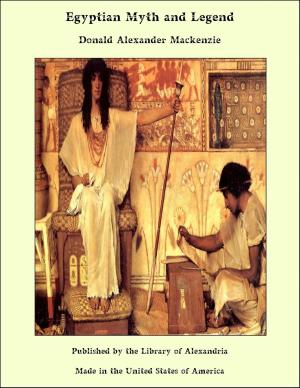History of Human Society
Nonfiction, Religion & Spirituality, New Age, History, Fiction & Literature| Author: | Frank W. Blackmar | ISBN: | 9781465512987 |
| Publisher: | Library of Alexandria | Publication: | March 8, 2015 |
| Imprint: | Language: | English |
| Author: | Frank W. Blackmar |
| ISBN: | 9781465512987 |
| Publisher: | Library of Alexandria |
| Publication: | March 8, 2015 |
| Imprint: | |
| Language: | English |
The Human Trail.--The trail of human life beginning in the mists of the past, winding through the ages and stretching away toward an unknown future, is a subject of perennial interest and worthy of profound thought. No other great subject so invites the attention of the mind of man. It is a very long trail, rough and unblazed, wandering over the continents of the earth. Those who have travelled it came in contact with the mysteries of an unknown world. They faced the terrors of the shifting forms of the earth, of volcanoes, earthquakes, floods, storms, and ice fields. They witnessed the extinction of forests and animal groups, and the changing forms of lakes, rivers, and mountains, and, indeed, the boundaries of oceans. It is the trail of human events and human endeavor on which man developed his physical powers, enlarged his brain capacity, developed and enriched his mind, and became efficient through art and industry. Through inventions and discovery he turned the forces of nature to his use, making them serve his will. In association with his fellows, man learned that mutual aid and co-operation were necessary to the survival of the race. To learn this caused him more trouble than all the terrors and mysteries of the natural world around him. Connected with the trail is a long chain of causes and effects, trial and error, success and failure, out of which has come the advancement of the race. The accumulated results of life on the trail are called civilization. Civilization May Be Defined.--To know what civilization is by study and observation is better than to rely upon a formal definition. For, indeed, the word is used in so many different ways that it admits of a loose interpretation. For instance, it may be used in a narrow sense to indicate the character and quality of the civil relations. Those tribes or nations having a well-developed social order, with government, laws, and other fixed social customs, are said to be civilized, while those peoples without these characters are assumed to be uncivilized. It may also be considered in a somewhat different sense, when the arts, industries, sciences, and habits of life are stimulated--civilization being determined by the degree in which these are developed. Whichever view is accepted, it involves a contrast of present ideals with past ideals, of an undeveloped with a developed state of human progress. But whatever notion we have of civilization, it is difficult to draw a fixed line between civilized and uncivilized peoples. Mr. Lewis H. Morgan, in his Ancient Society, asserts that civilization began with the phonetic alphabet, and that all human activity prior to this could be classified as savagery or barbarism. But there is a broader conception of civilization which recognizes all phases of human achievement, from the making of a stone axe to the construction of the airplane; from the rude hut to the magnificent palace; from crude moral and religious conditions to the more refined conditions of human association. If we consider that civilization involves the whole process of human achievement, it must admit of a great variety of qualities and degrees of development, hence it appears to be a relative term applied to the variation of human life. Thus, the Japanese are highly civilized along special lines of hand work, hand industry, and hand art, as well as being superior in some phases of family relationships. So we might say of the Chinese, the East Indians, and the American Indians, that they each have well-established customs, habits of thought, and standards of life, differing from other nations, expressing different types of civilization
The Human Trail.--The trail of human life beginning in the mists of the past, winding through the ages and stretching away toward an unknown future, is a subject of perennial interest and worthy of profound thought. No other great subject so invites the attention of the mind of man. It is a very long trail, rough and unblazed, wandering over the continents of the earth. Those who have travelled it came in contact with the mysteries of an unknown world. They faced the terrors of the shifting forms of the earth, of volcanoes, earthquakes, floods, storms, and ice fields. They witnessed the extinction of forests and animal groups, and the changing forms of lakes, rivers, and mountains, and, indeed, the boundaries of oceans. It is the trail of human events and human endeavor on which man developed his physical powers, enlarged his brain capacity, developed and enriched his mind, and became efficient through art and industry. Through inventions and discovery he turned the forces of nature to his use, making them serve his will. In association with his fellows, man learned that mutual aid and co-operation were necessary to the survival of the race. To learn this caused him more trouble than all the terrors and mysteries of the natural world around him. Connected with the trail is a long chain of causes and effects, trial and error, success and failure, out of which has come the advancement of the race. The accumulated results of life on the trail are called civilization. Civilization May Be Defined.--To know what civilization is by study and observation is better than to rely upon a formal definition. For, indeed, the word is used in so many different ways that it admits of a loose interpretation. For instance, it may be used in a narrow sense to indicate the character and quality of the civil relations. Those tribes or nations having a well-developed social order, with government, laws, and other fixed social customs, are said to be civilized, while those peoples without these characters are assumed to be uncivilized. It may also be considered in a somewhat different sense, when the arts, industries, sciences, and habits of life are stimulated--civilization being determined by the degree in which these are developed. Whichever view is accepted, it involves a contrast of present ideals with past ideals, of an undeveloped with a developed state of human progress. But whatever notion we have of civilization, it is difficult to draw a fixed line between civilized and uncivilized peoples. Mr. Lewis H. Morgan, in his Ancient Society, asserts that civilization began with the phonetic alphabet, and that all human activity prior to this could be classified as savagery or barbarism. But there is a broader conception of civilization which recognizes all phases of human achievement, from the making of a stone axe to the construction of the airplane; from the rude hut to the magnificent palace; from crude moral and religious conditions to the more refined conditions of human association. If we consider that civilization involves the whole process of human achievement, it must admit of a great variety of qualities and degrees of development, hence it appears to be a relative term applied to the variation of human life. Thus, the Japanese are highly civilized along special lines of hand work, hand industry, and hand art, as well as being superior in some phases of family relationships. So we might say of the Chinese, the East Indians, and the American Indians, that they each have well-established customs, habits of thought, and standards of life, differing from other nations, expressing different types of civilization















